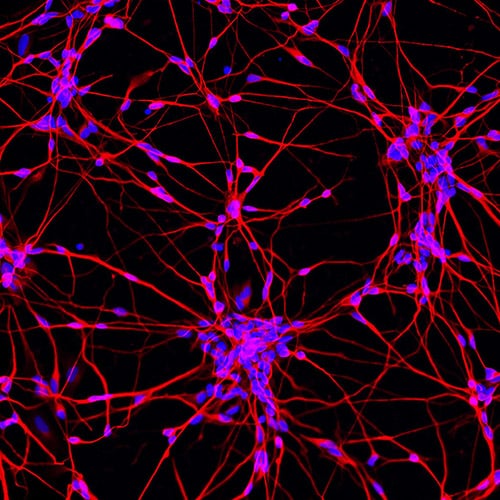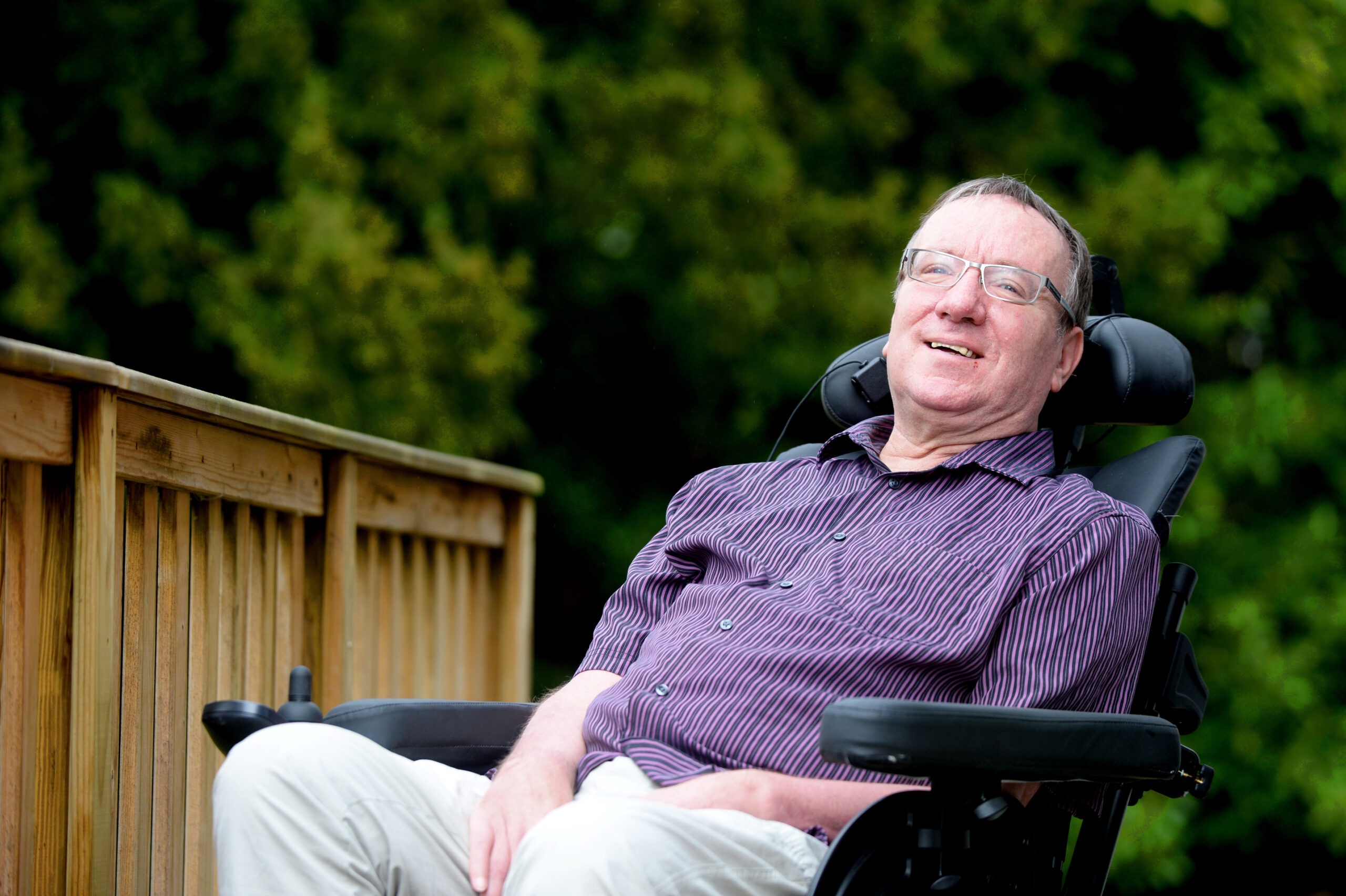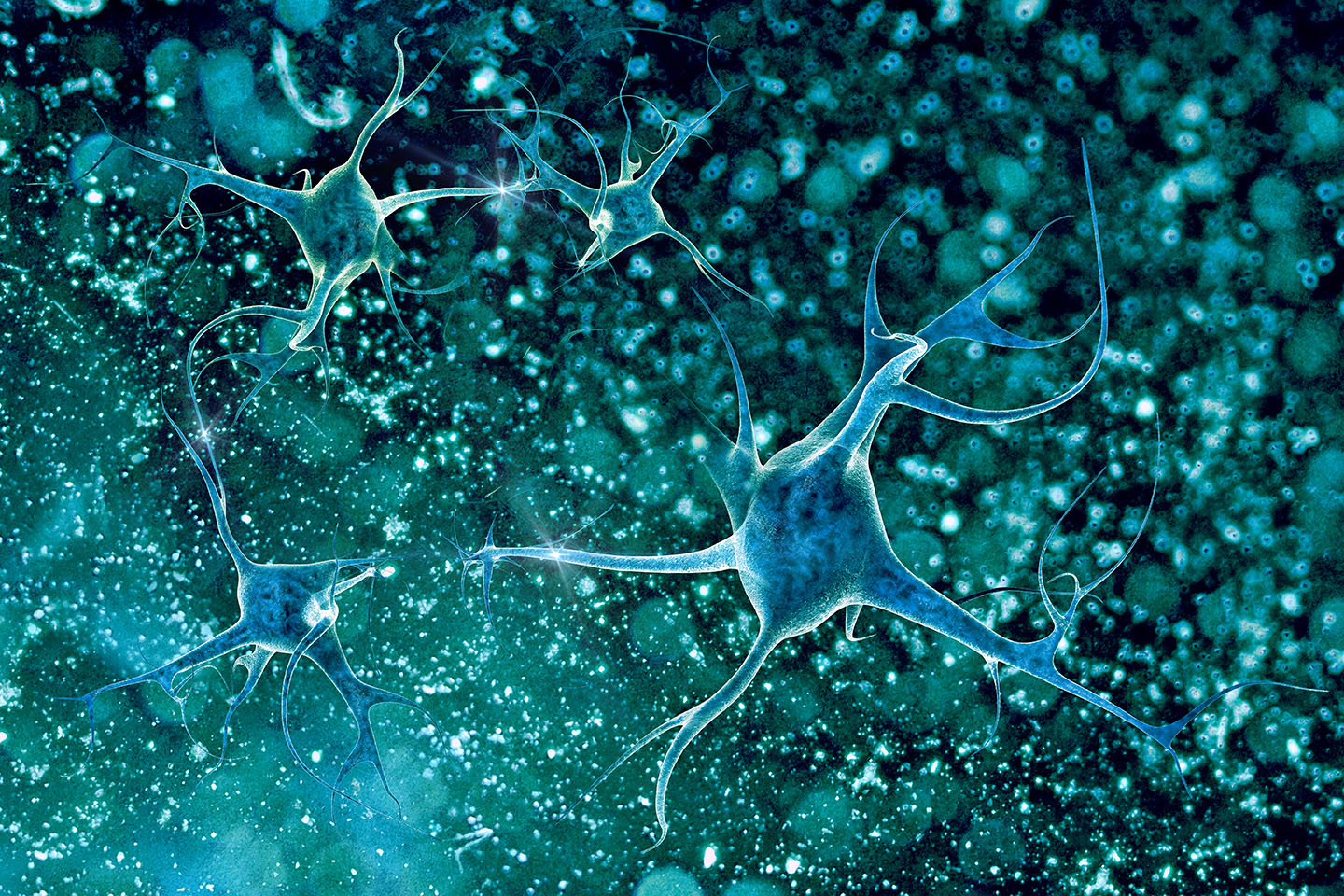Research investigating potential treatments for motor neurone disease (MND) has secured a further funding boost, bolstered by the marathon fund-raising efforts of Leeds Rhinos’ rugby coach Kevin Sinfield.
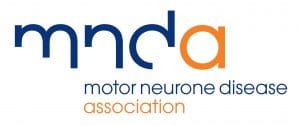
Last month, the former rugby league player and the Motor Neurone Disease Association announced that £500,000 of the money he raised, inspired by his team-mate and friend Rob Burrow, would be ring-fenced by the charity for research into the terminal illness.
Now, medical research charity LifeArc has pledged to match that amount, creating a £1m fund dedicated to stimulating research into practical treatments. The money will be targeted at research teams whose work is clearly focused on developing effective treatments. Researchers have until mid-June to apply for support from the fund.
Kevin, who is now Leeds Rhinos’ director of rugby after a long career playing with the club, said: “This is fantastic news and an amazing contribution from LifeArc. When we set out to complete the 7 in 7 Challenge we hoped to raise awareness and funds to support the MND community but it is wonderful to see the inspiration it has given people and organisations, like LifeArc, so they too can support the need for more research.
“We have seen over the last year the vital work that can be done by researchers and scientists when they are given the resources they need. MND is not incurable, it has just been underfunded and our hope – like that of everyone affected by this brutal disease including Rob – is that this money will make a real difference and help find the breakthrough we all desperately want.”
Recent advances in scientific understanding of the mechanics of MND provide new opportunities in the search for an effective treatment. MND attacks the nerves that control movement so muscles no longer work and can leave people locked in a failing body, unable to move, talk and eventually breathe. Every day in the UK six people are diagnosed with the disease – half will die within two years of diagnosis.
The £1m joint fund established by the MND Association and LifeArc will support research projects focused on developing new treatments or repurposing drugs that are already approved to treat other conditions. A key element of the selection process is that projects set out a clear path to reaching the later stages of the drug development process. Each organisation is contributing £500,000 to the fund.
Dr Brian Dickie, Director of Research Development at the MND Association said: “Our understanding of the causes of MND has improved dramatically over the last two decades but clinicians are still unable to offer their patients any truly effective treatments. We have to turn this new knowledge into potential new treatments if we are to offer people with the condition and their families real hope.
“We are so grateful to LifeArc for this generous contribution and are looking forward to working with them to identify projects which have a real chance of making a difference to our community in the coming years.
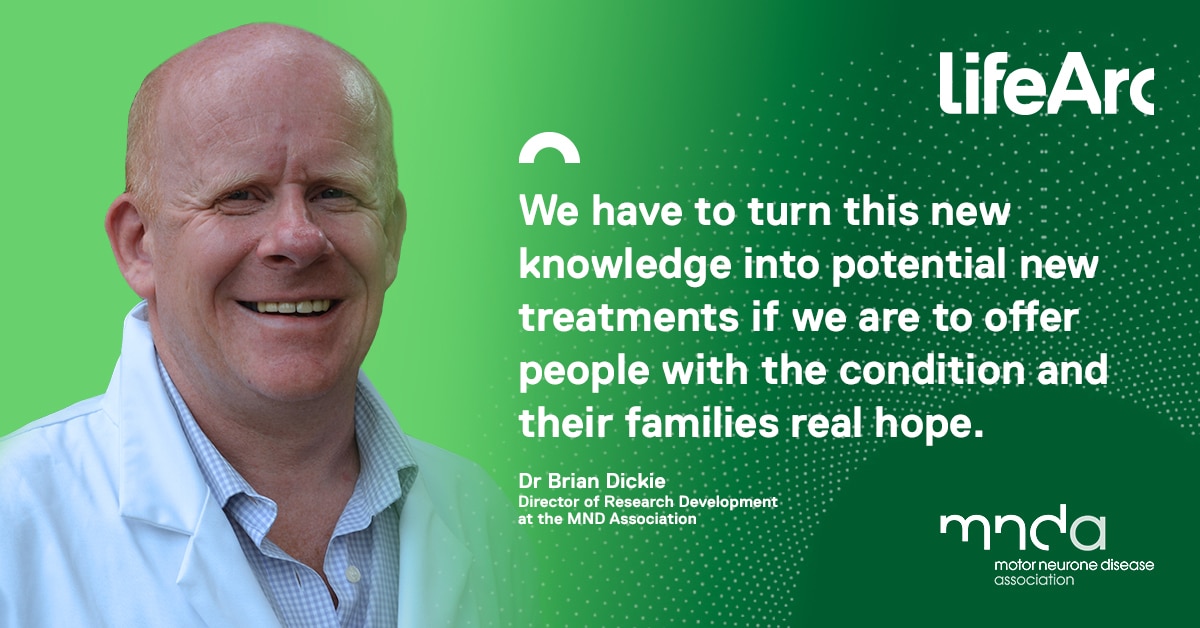
Dr Melanie Lee, CBE and LifeArc’s chief executive officer, emphasised that the focus of the new funding is on boosting research around potential treatment options based on the latest understanding of the disease. She said: “The ambition around stimulating the search for new treatments fits with LifeArc’s approach over the past 25 years to translate early science into health care treatments or diagnostics that can transform patients’ lives.
“The fund will help to bridge the gap between fundamental research into MND disease mechanisms and the search for practical treatments, facilitating translation of ideas into tangible products. Our partnership with the MND Association is the latest in a series of strategic partnerships that maximise LifeArc’s expertise in translating strong discoveries from the lab into benefitting patients with conditions with few or no effective treatment options.”
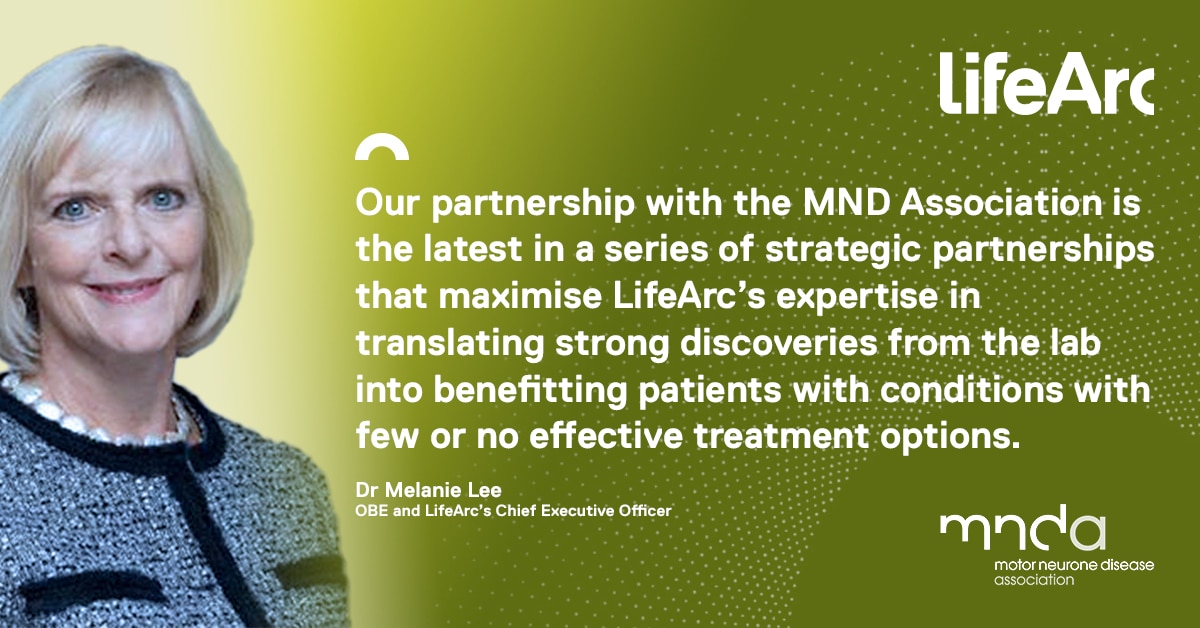
The fund will support teams that are working on:
- developing candidate therapeutics (e.g. drug discovery)
- pre-clinical testing of new therapeutics
- pre-clinical validation for existing treatments that could be repurposed for MND
- early-phase clinical trials of new therapeutics
- early-phase clinical trials of existing treatments repurposed for MND.
Successful projects will be expected to conclude within three years and be target-driven with set milestones and a credible delivery plan – including a clear route to reach MND patients.
Noting that the Association’s contribution is part of the money raised by Kevin’s marathon efforts last winter, Dr Dickie said: “Everybody who heard about Kevin’s magnificent effort on behalf of his mate and teammate, Rob, was so moved. Just months later his efforts are building hope in the most practical way for thousands of people affected by this devastating condition.”
For further information please see the LifeArc & MND Association Translational Research Fund page.
Media contact
Hannah Severyn
Head of Media and PR at LifeArc

